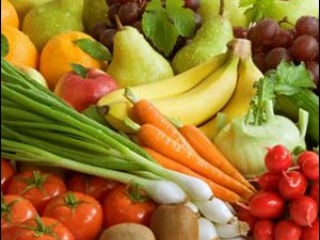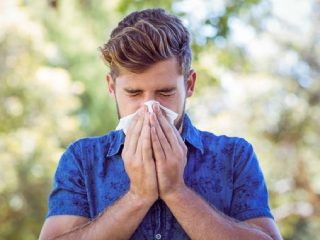Contents [hide]
- 1. Sudden stomach pain and water
- 2. When not do drink water?
- 3. Drinking water during a fever
- 4. Water or juice?
- 5. Hot or cold water?
- 6. Sip water frequently if constipated
- 7. The 7 glasses of water a day advice
- 8. Consuming water while eating
- 9. Avoid gulping water just to facilitate bowel movement
- 10. Avoid drinking plenty of water as soon as you wake up
How you drink water directly affects your stomach and in turn your health. Here we take a look at the intimate relationship between water and our stomach, when, how and how much water to drink.
1. Sudden stomach pain and water
If one experiences stomach pain, then drink about 2-3 glasses of warm water and sit still. Do not try to regurgitate or forcibly vomit by inserting fingers in the mouth. Try this remedy only once. Drinking this much water does not cause any harm. Any excess water will be gradually expelled as urine. Remember, if the stomach pain persists even after a couple of hours, then consult a trained doctor.

Why does this remedy work? If the stomach pain is due to indigestion and the food being stuck in the stomach, then drinking water induces nausea and vomiting thus dislodging the food from the stomach. If the stomach pain is due to a small stone in the kidneys (renal calculus) then that may pass along with the urine.
— Vaidya Meghraj Madhav Paradkar, Sanatan Ashram, Ramnathi, Goa.
2. When not do drink water?

If one is experiencing an extreme stomach pain and throws up more than once, then there could be serious stomach ailment, for example, a perforated ulcer. It is dangerous to even consume water in such condition. Therefore if such a situation arises then immediately consult a doctor instead of relying on home remedies.
— Dr. Ravindra Bhosale, Surgeon and Gastroenterologist, Nagar (24.11.2022)
3. Drinking water during a fever
If one has a fever, do not drink normal or room temperature water. Mix half a tea-spoon of ‘Sanatan Musta (Nagarmotha) Churna (powder)’ in a litre of water, and boil for 5 minutes. Keep this water in an insulated flask (thermos flask). Consume a few sips of this lukewarm water whenever thirsty. It helps in reducing the fever and also conserves energy.
4. Water or juice?
It is okay to consume sherbets or juices once in a while, but it is detrimental to drink it everyday. Juices contain high sugar content, and this unnecessary sugar gets delivered to your body. Excess sugar is injurious to health. Some swap sugar for jaggery, but even consuming jaggery in excess is not good. Consuming food with jaggery regularly induces cravings for such foodstuff. So it is beneficial to drink normal water instead of sherbet/juice.
5. Hot or cold water?
Cold water should be consumed in summer and warm water should be consumed in winter. Here cold water does not mean water from the refrigerator. Consuming water stored in claypots is blissful during summer. However, water from claypots must not be consumed during other seasons. Normal (unboiled) water (at room temperature) should not be consumed if one is experiencing sneezing, cold, phlegm in throat, fever, asthma, etc. In this case, boil water and then cool it down to lukewarm or room temperature and consume it.
6. Sip water frequently if constipated
It is incorrect to drink plenty of water in one go to empty the bowels. Instead sip water frequently (and drink lots over a longer period of time). If you consume plenty of water in one go, then the excess water will pass as urine, and not help the body at all. It is like overwatering a potted plant, the excess water will drain from the holes at the bottom of the pot immediately and not make it available to the plant. Instead a sprinkler or a drip irrigation system is far more beneficial. Thus the water given in drops is beneficial to the tree. So even in our case, water should be consumed sip by sip at regular (timed) intervals instead of drinking a lot in one go, for it to be used appropriately by the body.
7. The 7 glasses of water a day advice
The place, climate, physical activity, diet, etc., decide how much water the body requires. There are as many temperaments as there are people, so the water requirement is bound to differ from person to person. So do not set some arbitrary target for consuming water. Instead listen to your body and sip some water as and when you feel thirsty.
8. Consuming water while eating
The quantity of water has to be right for the chapati dough to obtain the right consistency and in turn prepare perfect chapatis. If the water is less the dough becomes tough and it is difficult to roll out the chapatis, and if the water is in excess the dough becomes too sticky. Similarly, the food we eat should have the right consistency to be digested properly. It should not be too dry or watery. This is why Ayurveda advises that one consume water little by little as and when required while eating.
9. Avoid gulping water just to facilitate bowel movement
If you have the habit of gulping down water in the morning just because that helps bowel movements, then it is time to get rid of this habit. It is more important to have good digestion (jatharagni or the fire in the stomach). If this fire is well lit (digestion is good), bowel movements will be regular and you will be healthy too.
10. Avoid drinking plenty of water as soon as you wake up
It is true that water is life, but what would happen if you throw a mugful of water onto a fireplace that has just been set alight? As soon as you wake up, the jatharagni begins to ignite. So if you drink lots of water, the same thing would happen as with the fireplace. So if you feel thirsty, sip water till you are satiated.

 Herbal, Spiritual and Musical remedies to beat the heat
Herbal, Spiritual and Musical remedies to beat the heat Monsoon and milk
Monsoon and milk Acidity : Causes, Symptoms, and Remedy
Acidity : Causes, Symptoms, and Remedy For healthy living avoid food that can cause antagonism due to contra-indications
For healthy living avoid food that can cause antagonism due to contra-indications Root cause of the diseases and their Divine treatment
Root cause of the diseases and their Divine treatment Are you distressed with constant sneezing ?
Are you distressed with constant sneezing ?